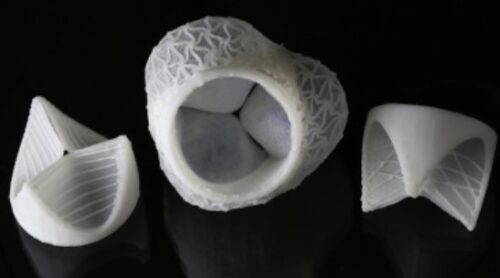Heart disease remains the leading cause of death worldwide, necessitating constant advancements in cardiac care and treatment options. Among these advancements, plastic injection molded heart valves have emerged as a groundbreaking innovation, revolutionizing the field of cardiology. These valves offer numerous benefits over traditional valve replacements, providing improved durability, biocompatibility, and customization possibilities. In this blog post, we will explore the technology behind plastic injection molded heart valves and their impact on patient outcomes.
Plastic injection molding is a manufacturing process that involves injecting molten plastic into a pre-designed mold cavity. This technique enables the production of complex and precise components with high efficiency and repeatability. The application of this technology to heart valve manufacturing has led to the development of plastic injection molded heart valves, which are superior in several aspects.
One of the key advantages of plastic injection molded heart valves is their enhanced durability. These valves are typically made from advanced polymers that possess excellent mechanical properties, such as high tensile strength and impact resistance. Unlike traditional materials used in valve replacements, such as metals or ceramics, plastic injection molded valves are less prone to wear and tear. This increased durability translates into longer valve lifespans, reducing the need for frequent replacements and subsequent surgeries.
Moreover, plastic injection molded heart valves offer superior biocompatibility. Biocompatibility refers to the ability of a material to perform its intended function without causing any adverse reactions within the body. The materials used in plastic injection molded valves are carefully selected to ensure compatibility with human tissues. These valves can be designed to mimic the natural properties of native heart valves, promoting better integration and minimizing the risk of rejection or inflammation. The biocompatibility of plastic injection molded heart valves contributes to improved patient outcomes and a reduced incidence of complications.
Another significant advantage of plastic injection molded heart valves is the customization potential they offer. Each patient has unique cardiac anatomy, and a one-size-fits-all approach to valve replacements may not always be suitable. With plastic injection molding, valves can be precisely tailored to meet the individual needs of each patient. This customization includes the shape, size, and features of the valve, ensuring an optimal fit and function. By allowing for personalized solutions, plastic injection molded heart valves have the potential to improve surgical outcomes and patient satisfaction.
The manufacturing process of plastic injection molded heart valves also facilitates cost-effective production. Injection molding enables mass production with minimal material waste and low labor requirements, resulting in reduced manufacturing costs. This cost efficiency makes plastic injection molded valves a more accessible option for patients, widening the reach of advanced cardiac care and treatment options.
While plastic injection molded heart valves offer numerous benefits, it is important to acknowledge that further research and clinical studies are needed to establish their long-term effectiveness and safety. The field of cardiac care is constantly evolving, and ongoing advancements in material science and manufacturing techniques will likely continue to refine the design and performance of plastic injection molded heart valves.
To sum up, plastic injection molded heart valves represent a significant advancement in the field of cardiology. Through their enhanced durability, biocompatibility, customization potential, and cost-effectiveness, these valves have the potential to improve patient outcomes and revolutionize cardiac care. As technology progresses and more research is conducted, plastic injection molded heart valves are expected to play an increasingly vital role in the treatment of heart disease, saving lives and improving the quality of life for patients worldwide.
